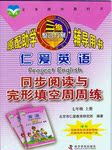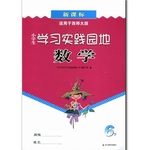题目内容
 sidered
sidered B. To consider
C. Considering
D. Consider

 仁爱英语同步练习册系列答案
仁爱英语同步练习册系列答案 学习实践园地系列答案
学习实践园地系列答案Ronaldo Luiz Nazario de Lima was born on 22 September 1976 in a poor suburb of Rio de Janeiro. Like most of his childhood friends, Ronaldo began his soccer career playing barefoot in the streets of his neighborhood. At the age of 14, he joined SCristovo soccer club and only two years later became the star of Cruzeiro Belo Horizonte scoring a total of 58 goals in 60 matches and earning himself a reputation for his explosive pace and outstanding finishing skills. His goal-scoring record and unusual agility led him to be included in the Brazilian World Cup winning team the following year. After the World Cup, many top European football clubs were trying to sign him. Many people, including Brazilian football legend Pelé, referred to him as the most promising footballer of his generation.
Since his transfer to Dutch team PSV Eindhoven, Ronaldo’s biography is one of success after success. Two Copa América s, a UEFA Cup, a Dutch Cup, a Spanish League Cup, and two awards as best player in the world, all in the space of two years, are some of Ronaldo s impressive achievements. On arrival to Inter-Milan in 1997, Ronaldo became the idol of the local fans who refer to him as “il Fenomeno.”
Since the 98 World Cup he has suffered two serious knee injuries that have severely limited his appearances. Just when people began to wonder whether Ronaldo would be able to continue with his football career, he proved to the world that he still could play. In the World Cup held in Korea and Japan, the magical striker won the Golden Shoe award and tied Pelé's Brazilian record for career World Cup goals with 12. He helped Brazil capture its fifth World Cup championship on June 30 with a 2-0 win over Germany. It was the third time that Ronaldo has ever played in the World Cup.
【小题1】We can infer from the passage that Ronaldo _____________.
| A.comes from a rich family |
| B.began to play soccer at 14 |
| C.won a total of 58 goals at 14 |
| D.became a star of Cruzeriro Belo Horizonte in 1992 |
| A.a good reputation | B.outstanding quality |
| C.quick moving | D.excellent skill |
| A.eight | B.eleven | C.twelve | D.five |
Ronaldo Luiz Nazario de Lima was born on 22 September 1976 in a poor suburb of Rio de Janeiro. Like most of his childhood friends, Ronaldo began his soccer career playing barefoot in the streets of his neighborhood. At the age of 14, he joined SCristovo soccer club and only two years later became the star of Cruzeiro Belo Horizonte scoring a total of 58 goals in 60 matches and earning himself a reputation for his explosive pace and outstanding finishing skills. His goal-scoring record and unusual agility led him to be included in the Brazilian World Cup winning team the following year. After the World Cup, many top European football clubs were trying to sign him. Many people, including Brazilian football legend Pelé, referred to him as the most promising footballer of his generation.
Since his transfer to Dutch team PSV Eindhoven, Ronaldo’s biography is one of success after success. Two Copa América s, a UEFA Cup, a Dutch Cup, a Spanish League Cup, and two awards as best player in the world, all in the space of two years, are some of Ronaldo s impressive achievements. On arrival to Inter-Milan in 1997, Ronaldo became the idol of the local fans who refer to him as “il Fenomeno.”
Since the 98 World Cup he has suffered two serious knee injuries that have severely limited his appearances. Just when people began to wonder whether Ronaldo would be able to continue with his football career, he proved to the world that he still could play. In the World Cup held in Korea and Japan, the magical striker won the Golden Shoe award and tied Pelé's Brazilian record for career World Cup goals with 12. He helped Brazil capture its fifth World Cup championship on June 30 with a 2-0 win over Germany. It was the third time that Ronaldo has ever played in the World Cup.
1.We can infer from the passage that Ronaldo _____________.
|
A.comes from a rich family |
|
B.began to play soccer at 14 |
|
C.won a total of 58 goals at 14 |
|
D.became a star of Cruzeriro Belo Horizonte in 1992 |
2.The meaning of the underlined word in Paragraph1 is similar to __________________.
|
A.a good reputation |
B.outstanding quality |
|
C.quick moving |
D.excellent skill |
3.From the passage we can conclude that Ronald participated in ____big international soccer matches in all.
|
A.eight |
B.eleven |
C.twelve |
D.five |